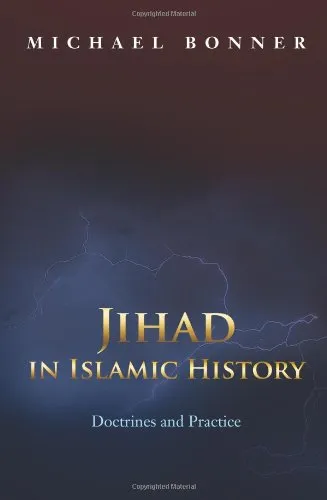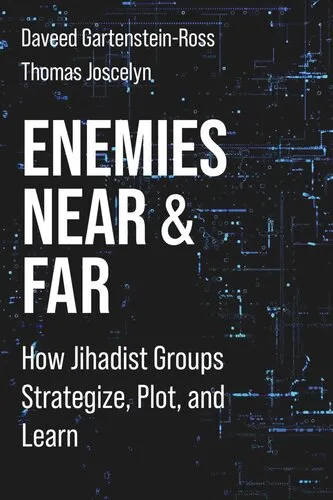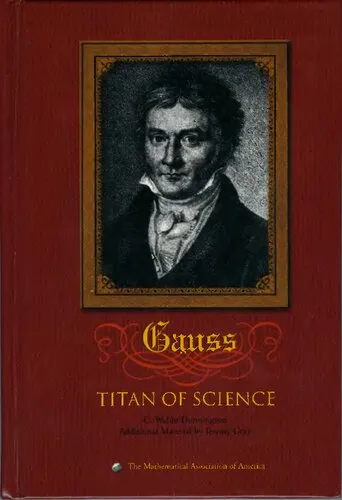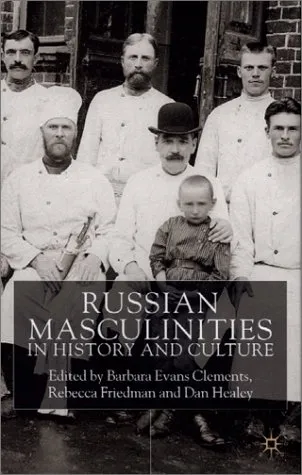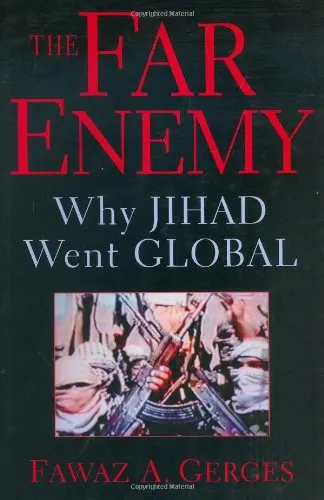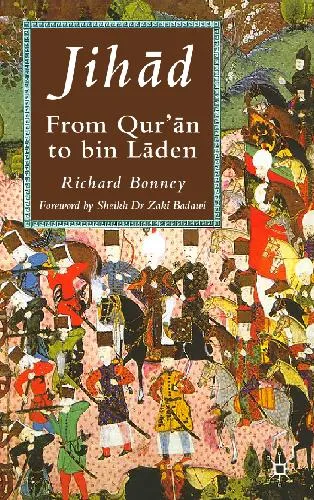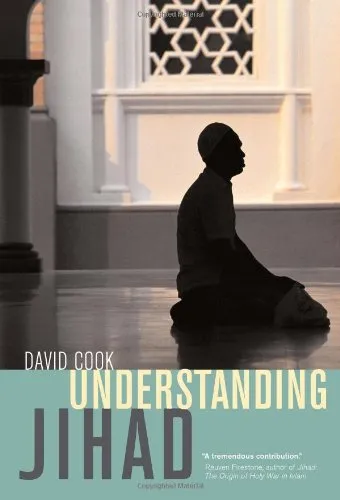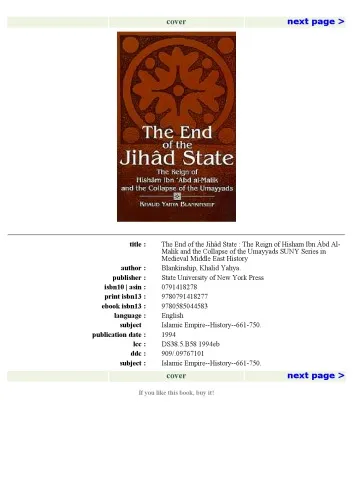Jihad in Islamic History: Doctrines and Practice
4.5
Reviews from our users

You Can Ask your questions from this book's AI after Login
Each download or ask from book AI costs 2 points. To earn more free points, please visit the Points Guide Page and complete some valuable actions.Related Refrences:
Introduction to "Jihad in Islamic History: Doctrines and Practice"
Understanding the concept of jihad is essential to comprehending the rich and complex history of Islam. In my book, Jihad in Islamic History: Doctrines and Practice, I delve deeply into one of the most misunderstood aspects of Islamic tradition — the doctrine and practice of jihad. By exploring its historical, religious, and cultural dimensions, the book invites readers to move beyond oversimplified stereotypes and examine jihad within its proper intellectual and historical context.
Jihad, often translated as "struggle" or "striving," has been subjected to many interpretations throughout Islamic history. My work focuses on the evolution of this concept: its foundational roots in classical Islamic teachings, its application over time, and its multifaceted role in shaping the Islamic world. With an emphasis on both doctrine and practice, I aim to provide a balanced and scholarly exploration of how Muslims, both historically and in more contemporary settings, have understood and engaged with this pivotal concept.
Summary of the Book
The book is structured to provide a nuanced exploration of jihad across various historical and doctrinal contexts.
The opening chapters provide readers with a grounding in the Quranic and early Islamic sources about jihad. These explore the scriptural roots of the concept, its moral and spiritual dimensions, and the early historical context in which jihad first emerged during the life of the Prophet Muhammad and the subsequent generations.
Further chapters discuss the development of legal and theological frameworks around jihad as Islam expanded its geographic and cultural reach. Through these sections, readers can understand how Islamic jurists and scholars envisioned jihad, not merely as warfare but also as a personal striving toward moral and spiritual betterment.
In later chapters, I examine more modern interpretations of jihad in response to colonialism, the emergence of nation-states, and evolving political theories. The book also carefully analyzes how jihad has been appropriated or misinterpreted in the modern era, especially in the geopolitical context of the 20th and 21st centuries. I unravel how some interpretations have contributed to violence, while others have retained the broader spiritual and ethical vision of Islamic tradition.
Key Takeaways
- Jihad has deep, diverse meanings in Islamic tradition, ranging from spiritual struggle to physical defense.
- The Quran and early Islamic texts establish frameworks for both the ethics of warfare and the personal dimensions of jihad.
- Islamic scholars across centuries have deliberated extensively on the rules, motives, and applications of jihad.
- The concept of jihad has evolved significantly, shaped by historical changes, cultural encounters, and political transformations.
- Simplistic portrayals of jihad in modern discourse often neglect its layered history and spiritual aspects.
Famous Quotes from the Book
"Jihad is not uniformly or exclusively about violence; it signifies a rich and meaningful struggle, whether personal, spiritual, or social."
"To understand jihad requires the willingness to confront its complexity rather than reducing it to preconceived notions."
"The legal and ethical doctrines surrounding jihad demonstrate the thoroughness with which Islamic scholars sought to balance justice and power."
Why This Book Matters
In a world where misunderstandings about Islam persist, this book offers a vital contribution to both scholarship and public discourse.
Studying jihad is not just about unraveling a historical or religious concept; it is about understanding one of the most critical ideas that have shaped the Islamic world and continue to impact global geopolitics today. Through a careful study of classical doctrines and historical practices, the book invites readers to think critically about the meanings and applications of jihad across time.
At the heart of the book is the belief that nuanced scholarship can combat stereotypes and foster more informed conversations about contentious topics. By reading this book, scholars, students, and curious readers alike will gain tools to better understand Islam, its history, and the diverse ways in which Muslims have interpreted their faith and their obligations.
In an age where simplistic interpretations of jihad dominate headlines and public opinion, the need for a deeper, evidence-based analysis is more urgent than ever. This is precisely what Jihad in Islamic History: Doctrines and Practice strives to achieve.
Free Direct Download
You Can Download this book after Login
Accessing books through legal platforms and public libraries not only supports the rights of authors and publishers but also contributes to the sustainability of reading culture. Before downloading, please take a moment to consider these options.
Find this book on other platforms:
WorldCat helps you find books in libraries worldwide.
See ratings, reviews, and discussions on Goodreads.
Find and buy rare or used books on AbeBooks.
1744
بازدید4.5
امتیاز0
نظر98%
رضایتReviews:
4.5
Based on 0 users review
Questions & Answers
Ask questions about this book or help others by answering
No questions yet. Be the first to ask!
